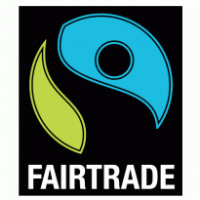Certification is used to indicate the ethical credentials of agricultural products. It is particularly used by transnational corporations such as the producers of tropical fruits like Dole, Del Monte and Chiquita. I am grateful to Banana Link, a UK-based organisation that provides in-depth analysis of the international trade in tropical fruits for permission to reproduce the following article which raises serious questions and doubts about the validity and purpose of SAN/RA standards[1], and should especially prompt the question: who certifies the certifiers? It is reproduced from their News Bulletin of March 2016 (no.54).
[Banana Link: www.bananalink.org.uk]
Key words: Rainforest Alliance; certification; workers’ rights; SAN standards; anti-union tactics; banana production.
In the 1990s and 2000s it was the fruit companies who put their faith in certification and sought to use it as a way of demonstrating to consumers and buyers that they respected a set of social or environmental standards. It was Social Accountability International’s SA 8000 labour standard and Rainforest Alliance’s mainly environmental standard that found favour with Dole, Del Monte and Chiquita.
In the last few months it is the retailers in the UK who have been announcing that they will move to 100% “sustainable sourcing” through the use of certification. Late last year Asda/Walmart announced that 93% of its bananas would be Rainforest Alliance certified by March 2016, the remainder being Fairtrade certified. In February it was the turn of Lidl UK to announce a similar strategy: by the end of this year the 88% of their offer that was not Fairtrade certified would meet Rainforest Alliance standards. Press reports also suggest that Tesco will follow with a similar strategy.
Apart from the crucial difference with Fairtrade – that there is no minimum price enshrined in the standard – how does a certification scheme that started life as a set of purely environmental standards fare when it comes to securing compliance with labour standards for plantation workers? A report last year from the Honduran federation of agro-industrial workers’ unions Festagro gives serious cause for concern, and is summarised here:
Rainforest Alliance certification and workers’ rights
“Despite the good principles and objectives set out in the certification standards and their theories of change, improvements for workers are hard to detect in practice.” – Dr Ruy Diaz and German Zepeda in “Working Conditions in Certified Banana Plantations in Central America”, August 2015, produced with support from the US-based AFL-CIO Solidarity Centre.
The Rainforest Alliance currently certifies 1600 banana farms covering over 100 000 hectares.
The authors of the report carried out interviews with workers and union representatives in 37 Rainforest Alliance certified farms belonging to both multinational and national producers in Guatemala (North and South), Honduras, Nicaragua, Costa Rica and Panama.
Key issues emerging from the interviews
Reponsiveness to workers and the issues covered by the SAN standard
- No systematic contact between workers and trade unions on the one hand and the certifier and the auditors on the other
- When issues are raised verbally with auditors they are not resolved
- The formal complaint procedure is difficult to access (the form is only available in English!)
- Audit reports are not shared with workers or unions
- The only cases of de-certification over labour violations were in Honduras where the unions engaged in a public campaign to bring the violations to RA’s attention
Labour issues found on certified plantations
- The most systematic and serious is the case of Costa Rica where there is little or no trade union freedom and collective bargaining; there is often systematic persecution of trade union members and they suffer workplace discrimination; there are many cases of sackings of unionised workers using a range of pretexts. The situation also remains serious for workers in national producer companies in Honduras despite de-certification and re-certification of a group of 14 plantations.
- There are no unions in Southern Guatemala and workers fear to form or join a union because of the anti-union messages from employers and because of the assassination of the leader of the only union that was set up in the region in 2008. This region has the biggest concentration of RA certified farms in the world.
- Non-payment of minimum wages was found in some plantations in Southern Guatemala and Honduras.
- Overtime hours are rarely paid in Costa Rica; overtime is de facto obligatory in Nicaragua and Costa Rica and in some national producers in Honduras.
- In Nicaragua there are several plantations where the employer does not pay full social security contributions.
- In Honduras and Nicaragua there are violations of holiday rights in many farms; and in Nicaragua workers on long-term sick leave are being made redundant.
- Sexual harassment is reported in certified plantations in Panama, Honduras and Costa Rica
- In Southern Guatemala and Honduras there are many plantations with statutory Occupational Health & Safety Committees; in many others the committees function badly or only exist on paper.
- In Guatemala one community reported being regularly subjected to aerial spraying from the neighbouring certified plantation.
- Workers on all plantations reported that there is inadequate information provided on agrochemicals they use and little or no training in health and safety in many cases. In Southern Guatemala workers reported up to 12 hour days working with chemicals.
- Much of the training required in SAN standards is rarely delivered.
Conclusion
The workers all assume that the certification is to benefit the company in marketing its fruit. Although there is a reasonable level of awareness that their employer is certified by RA there is almost no awareness of the details of the standards and therefore how they could use the leverage of certification to demand the end to violations of rights or improvements in working conditions.
[1] SAN/RA: Sustainable Agriculture Network/Rainforest Alliance
 The following description is taken from a Fairtrade Foundation leaflet entitled ‘What is Fairtrade?’
The following description is taken from a Fairtrade Foundation leaflet entitled ‘What is Fairtrade?’